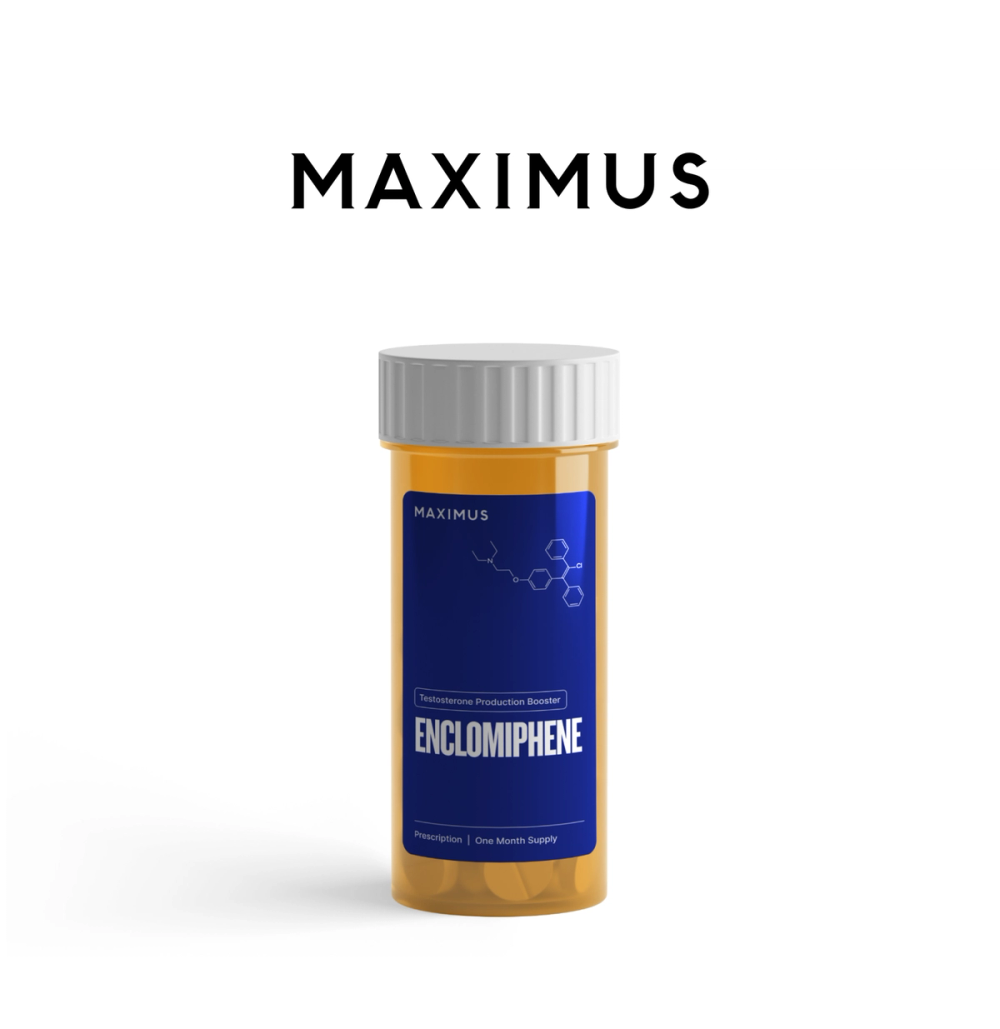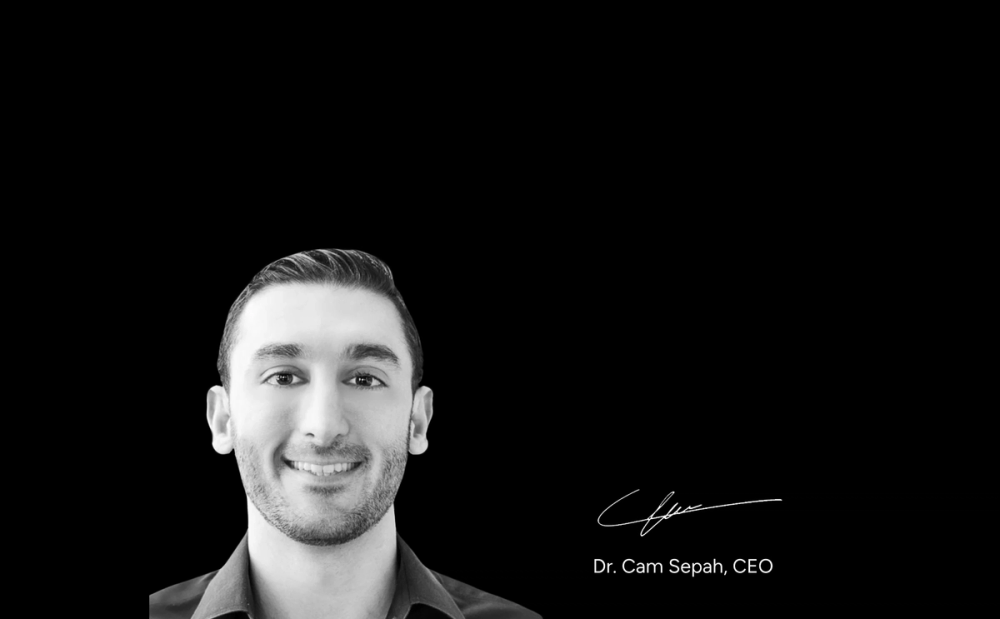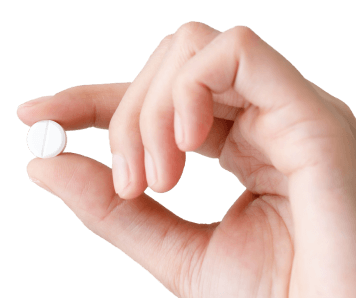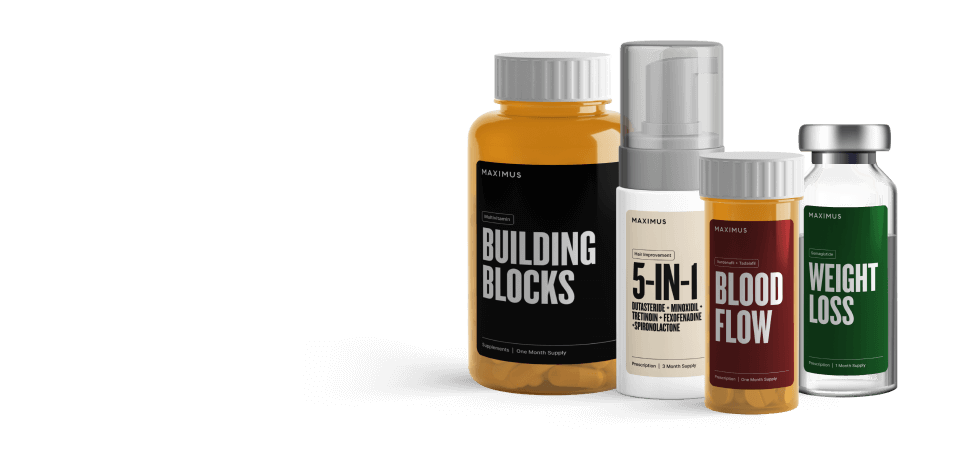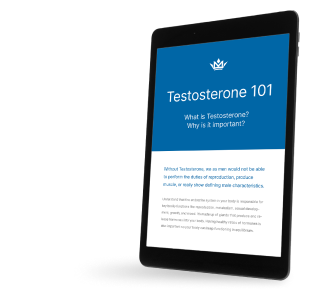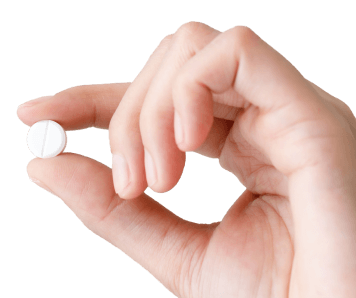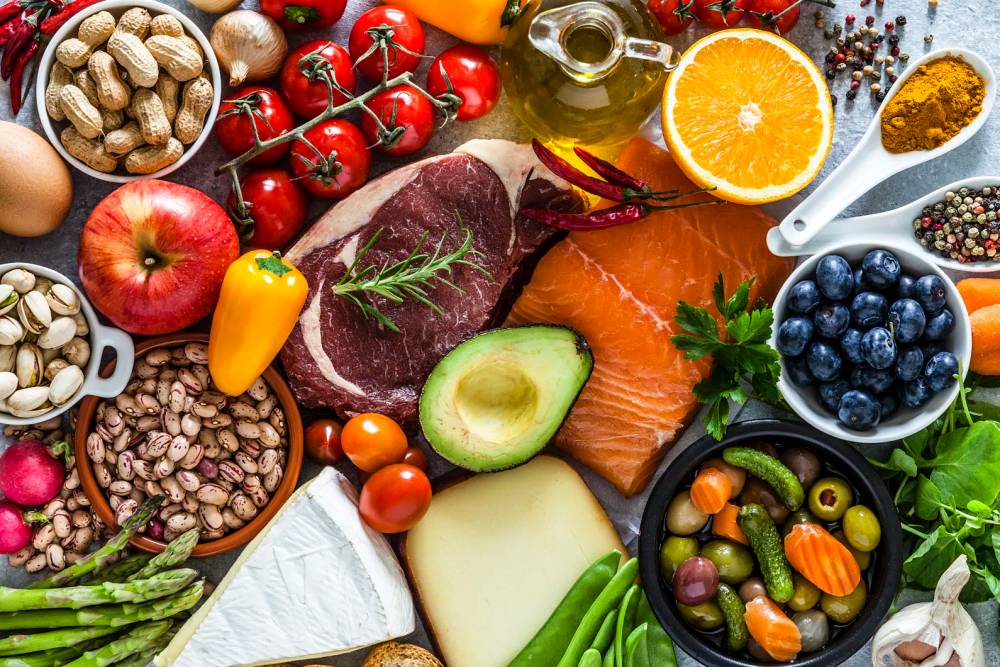Key Takeaways
- Healthy testosterone levels are an integral part of your health, helping your sex drive, increasing muscle and bone strength, and more.
- Research shows certain foods like whey protein, fatty fish, leafy greens, avocados, and eggs may increase testosterone levels.
- Eating a balanced diet is one effective way to optimize your testosterone levels, along with other healthy lifestyle factors, like getting better sleep and exercising regularly.
Maintaining your testosterone levels as a man is important for many aspects of your life.
From improving your libido and sexual health to supporting muscle growth and more, testosterone is a vital hormone.
However, many men struggle with low testosterone levels, especially as they get older. This can lead to higher body fat, depression, and sexual issues like erectile dysfunction and lower sex drive.
Fortunately, there’s several ways to treat low testosterone, including medications like enclomiphene and testosterone replacement therapy (TRT), to lifestyle changes like eating differently.
In addition to medications, eating certain foods that have nutrients that can benefit and possibly even improve your testosterone levels is key for better T levels.
Below, you’ll learn the 10 best foods for boosting testosterone, as well as some other methods for increasing low testosterone levels.
What is testosterone?
Testosterone is a sex hormone. In men, it’s produced in the testicles. Testosterone plays a key role in the development of many masculine characteristics and affects bodily processes like sex drive, metabolism, and reproduction.
Testosterone naturally declines as you age, and the symptoms of low testosterone can impact your health and life. Younger men can also be affected by low testosterone, even experiencing low T in their 20s.
According to the American Urology Association, low testosterone levels are typically considered to be less than 300 nanograms per deciliter (ng/dL).
Your doctor may check your testosterone levels and diagnose you with testosterone deficiency if you have low total testosterone levels combined with symptoms of low testosterone.
Some low testosterone symptoms to look out for:
- Lowered sex drive
- Decreased muscle mass or bone strength
- Less ability to focus
- Difficulty having an erection
- Sleep problems
- Worsened mood and confidence
The truth about diet and testosterone
Most articles you'll see online simply give you a list of foods. But the truth is, increasing your testosterone isn't just about picking the right foods...
It's a lifestyle change. It's a change of habits. It's a shift in behavior. Too often how-to articles give you some flimsy list of tips or tricks and expect you to make it work on your own.
Here at Maximus we understand what it really takes to effect real change. Sure, our list of testosterone boosting foods is clear, useful and helpful. But it's the habit that matters.
That means ways to plan, tools for finding better ways to eat, making time for testosterone-forward nutrition — all things you're probably not used to right now.
3 tips for making testosterone diets a habit
Let's face it, diet changes are hard.
Below you'll find is a list of testosterone-friendly foods. But really you should be seeing them as ingredients.
Ingredients need preparation, creativity, and time.
Otherwise you're eating a bowl of raw kale with your bare hands... Not an experience that's going to become a habit.
Find ways to make diet changes simple, exciting and fulfilling:
- Smoothies are a perfect way to combine several testosterone boosting ingredients quickly and deliciously. At least 6 ingredients on this list are common smoothie staples. Add some fruit for taste and you're good.
- Seek out some simple and fast recipes and find your faves. Sites like NYT Cooking offer ingredient search: just type in what T boosting food you wanna cook with and it'll show you all the recipes containing it. YouTube channels like J. Kenji López-Alt and Binging with Babish offer a ton of fast, delicious recipes to expand your horizons.
- Meal prep helps you lock in your menu in advance and avoid straying from your new diet behaviors. Set aside time on a Sunday and cook in bulk for the whole week. You can't cheat if dinner is already made...
Diets are habits. Forming them is hard, but with a few simple changes they're behaviours that will actually last.
The key is making testosterone boosting foods fun, delicious, and efficient.
Keep that in mind as you go through the 10 best foods for boosting testosterone.
The 10 best testosterone-boosting foods
The following foods that boost testosterone are great on their own or in your favorite recipes.
These 10 foods can help optimize your body's testosterone production and improve your overall health.
1. Whey protein
Good news for any gym rats out there using whey protein supplements to increase their gains. Whey protein not only supports muscle growth but may also offer indirect benefits to your hormones.
A very small 2013 study found that men using morning whey protein isolate supplements for two weeks exhibited lower cortisol responses after working out.
Elevated levels of cortisol, aka the stress hormone, may affect testosterone production, thereby reducing testosterone levels.
So lowering cortisol levels after exercise, such as supplementing with whey protein, may indirectly help men maintain healthy testosterone levels.
However, keep in mind that the effects shown in the study are modest, and the study was small, with just 10 subjects.
2. Fatty fish
If you eat a lot of fish — particularly fatty fish like salmon and tuna — your testosterone levels could see improvements.
These fatty fish are low in saturated fat while also being good sources of omega-3 fatty acids, which are good for your heart health and your hormonal health, among other benefits.
Fatty fish are also good sources of zinc and vitamin D — Fatty fish are also good sources of zinc and vitamin D —two key nutrients that help maintain healthy testosterone levels.
Research suggests that men with low vitamin D levels tend to have lower testosterone than men with higher vitamin D levels. This is because vitamin D is an important nutrient for male reproductive health.
And since vitamin D is an important nutrient for male reproductive health, research suggests that lower testosterone may be due to low vitamin D levels in men compared to men with high vitamin D levels.
And if you’re not a fan of fish, try a fish or krill supplement instead.
3. Oysters
Another great food source to increase testosterone naturally? Oysters.
Oysters are a nutrient-dense food high in selenium and zinc.
Zinc has been shown to play an important role in male reproductive health, especially fertility and sperm production.
A moderate or severe zinc deficiency can also cause hypogonadism, the clinical term for low testosterone levels.
Need further encouragement to up your zinc intake?
In a study published in the journal Nutrition, when men stopped eating zinc-rich foods for 20 weeks, their average testosterone levels declined according to a study published in Nutrition.
4. Leafy greens
You already know how important it is to eat your greens, and this piece of advice rings true when it comes to increasing testosterone.
Dark, leafy greens like spinach and kale may help maintain healthy testosterone levels because they’re high in magnesium.
Magnesium deficiency is linked to oxidative stress, an imbalance between antioxidants and free radicals in your body that can lead to cell damage in your body.
However, magnesium can reduce oxidative stress, so incorporating magnesium-rich leafy greens may help you maintain healthy testosterone levels.
5. Avocados
Not only do avocados contain healthy fats and magnesium, but they’re also a good source of boron, a trace mineral that has benefits for hormone health.
By adding some avocado to your diet, you can reap the benefits of boron, which research shows to increase testosterone levels in men and help convert total testosterone into free testosterone (the bioavailable or active form of testosterone your body can use).
6. Eggs
Whole eggs are highly nutritious, providing plenty of protein for muscle growth and vitamin D. They may also be a great food for increasing testosterone levels.
Eggs also contain a high amount of selenium, which has been linked to higher testosterone levels in some human and animal studies.
However, more research is needed to better understand how selenium might impact testosterone levels.
7. Onions
A staple in cooking, onions can do more than add flavor to your meal — they may also bring some testosterone-boosting benefits.
As of now, there’s limited evidence that onions support hormone production and may raise overall testosterone levels — but a lot more research is needed to better understand and confirm this link
8. Ginger
Beyond being an herbal remedy for issues like nausea and vomiting, ginger may also increase testosterone in a number of different ways, such as by reducing oxidative stress, enhancing the production of luteinizing hormone (a key hormone for testosterone), and increasing blood flow within the testes.
However, the researchers noted that the link between ginger and increased testosterone isn’t confirmed in humans, and more clinical research is needed.
9. Extra virgin olive oil
There’s a good chance some of you use extra-virgin olive oil (EVOO) when you cook. And if you don't, here’s a good reason to start — it may increase testosterone levels.
EVOO is high in monounsaturated fatty acids that can lower “bad” cholesterol and may even have antioxidant effects.
Beyond those benefits, t results from one small study found that olive oil increased serum testosterone levels in healthy men.
10. Pomegranate
If you’re looking to up your fruit intake and possibly boost your testosterone levels, too, try adding pomegranate to your diet.
Pomegranates offer plenty of benefits such as preventing or treating high cholesterol, oxidative stress, and high blood pressure. It may also have antioxidant and anti-inflammatory properties.
While all those benefits can positively affect your overall health, pomegranate juice may also impact testosterone.
Results from a 2012 study involving 60 healthy participants showed a 24% increase in salivary testosterone levels, on average.
Other ways to increase low testosterone
Eating foods like fatty fish, eggs, leafy greens, avocado, whey protein, ginger, and onions may help improve your testosterone levels and overall health.
But a testosterone-friendly diet is just one way to optimize your testosterone levels.
Other scientifically proven ways to increase testosterone include:
- Regular exercise, including strength training
- Aiming for seven to nine hours of sleep each night
- Managing stress levels, such as through meditation
- Avoiding dairy, sugar, and other foods that lower testosterone
- Reducing daily alcohol intake
- Ask your doctor about medication like Maximus’ Testosterone protocols
One food alone can't instantly boost your reproductive health and T levels. But your diet dramatically impacts your health, including your ability to produce and use hormones.
Prioritizing the right foods may positively affect your body’s ability to maintain healthy testosterone production.
Disclaimer: The contents of this article, including, but not limited to, text, graphics, images, and other information, is for information purposes only and does not constitute medical advice. The information contained herein is not a substitute for and should never be relied upon for professional medical advice. The content is not meant to be complete or exhaustive or to be applicable to any specific individual's medical condition. You should consult a licensed healthcare professional before starting any health protocol and seek the advice of your physician or other medical professional if you have questions or concerns about a medical condition. Always talk to your doctor about the risks and benefits of any treatment. Never disregard or delay seeking professional medical advice or treatment because of something you have read on this site. Maximus does not recommend, endorse, or make any representation about the efficacy, appropriateness, or suitability of any specific test, products, procedures, treatments, services, opinions, healthcare providers or other information contained herein. Maximus is not responsible for, nor will they bear any liability for, the content provided herein or any actions or outcomes resulting from or related to its use.
References:
Al-Dujaili, E., & Smail, N. (2012). Pomegranate juice intake enhances salivary testosterone levels and improves mood and well being in healthy men and women. Endocrine Abstracts, 28, 313. https://www.endocrine-abstracts.org/ea/0028/ea0028p313
Allouche-Fitoussi, D., & Breitbart, H. (2020). The Role of Zinc in Male Fertility. International journal of molecular sciences, 21(20), 7796. https://pmc.ncbi.nlm.nih.gov/articles/PMC7589359/
Banihani S. A. (2018). Ginger and Testosterone. Biomolecules, 8(4), 119. https://pmc.ncbi.nlm.nih.gov/articles/PMC6316093/
Banihani S. A. (2019). Testosterone in Males as Enhanced by Onion (Allium Cepa L.). Biomolecules, 9(2), 75. https://pmc.ncbi.nlm.nih.gov/articles/PMC6406961/
Boron - Health Professional Fact Sheet. (2022, June 9). NIH Office of Dietary Supplements. Retrieved November 10, 2024, from https://ods.od.nih.gov/factsheets/Boron-HealthProfessional/
Brownlee, K. K., Moore, A. W., & Hackney, A. C. (2005). Relationship between circulating cortisol and testosterone: influence of physical exercise. Journal of sports science & medicine, 4(1), 76–83. https://pmc.ncbi.nlm.nih.gov/articles/PMC3880087/
Calagna, G., Catinella, V., Polito, S., Schiattarella, A., De Franciscis, P., D'Antonio, F., Calì, G., Perino, A., & Cucinella, G. (2022). Vitamin D and Male Reproduction: Updated Evidence Based on Literature Review. Nutrients, 14(16), 3278. https://pmc.ncbi.nlm.nih.gov/articles/PMC9412569/
Chen, C., Zhai, H., Cheng, J., Weng, P., Chen, Y., Li, Q., Wang, C., Xia, F., Wang, N., & Lu, Y. (2019). Causal Link Between Vitamin D and Total Testosterone in Men: A Mendelian Randomization Analysis. The Journal of clinical endocrinology and metabolism, 104(8), 3148–3156. https://pubmed.ncbi.nlm.nih.gov/30896763/
Cohen, J., Nassau, D. E., Patel, P., & Ramasamy, R. (2020). Low Testosterone in Adolescents & Young Adults. Frontiers in endocrinology, 10, 916. https://pmc.ncbi.nlm.nih.gov/articles/PMC6966696/
Could you have low testosterone? (n.d.). MedlinePlus. https://medlineplus.gov/ency/patientinstructions/000722.htm
Derouiche, A., Jafri, A., Driouch, I., El Khasmi, M., Adlouni, A., Benajiba, N., Bamou, Y., Saile, R., & Benouhoud, M. (2013). Effect of argan and olive oil consumption on the hormonal profile of androgens among healthy adult Moroccan men. Natural product communications, 8(1), 51–53. https://pubmed.ncbi.nlm.nih.gov/23472458/
Eggs, Grade A, Large, egg white. (2019). Food Data Central. https://fdc.nal.usda.gov/food-details/747997/nutrients
Fish and Omega-3 Fatty Acids. (2024, August 23). American Heart Association. Retrieved November 10, 2024, from https://www.heart.org/en/healthy-living/healthy-eating/eat-smart/fats/fish-and-omega-3-fatty-acids
Fish, salmon, Atlantic, farm raised, raw. (2024). Food Data Central. https://fdc.nal.usda.gov/food-details/2684441/nutrients
Kraemer, W. J., Solomon-Hill, G., Volk, B. M., Kupchak, B. R., Looney, D. P., Dunn-Lewis, C., Comstock, B. A., Szivak, T. K., Hooper, D. R., Flanagan, S. D., Maresh, C. M., & Volek, J. S. (2013). The effects of soy and whey protein supplementation on acute hormonal reponses to resistance exercise in men. Journal of the American College of Nutrition, 32(1), 66–74. https://pubmed.ncbi.nlm.nih.gov/24015701/
Kurniawan, A. L., Hsu, C. Y., Chao, J. C., Paramastri, R., Lee, H. A., Lai, P. C., Hsieh, N. C., & Wu, S. V. (2021). Association of Testosterone-Related Dietary Pattern with Testicular Function among Adult Men: A Cross-Sectional Health Screening Study in Taiwan. Nutrients, 13(1), 259. https://pmc.ncbi.nlm.nih.gov/articles/PMC7830687/
LeWine, H. E. (2024, July 22). Is extra-virgin olive oil extra healthy? Harvard Health. https://www.health.harvard.edu/nutrition/is-extra-virgin-olive-oil-extra-healthy
Maggio, M., Ceda, G. P., Lauretani, F., Cattabiani, C., Avantaggiato, E., Morganti, S., Ablondi, F., Bandinelli, S., Dominguez, L. J., Barbagallo, M., Paolisso, G., Semba, R. D., & Ferrucci, L. (2011). Magnesium and anabolic hormones in older men. International journal of andrology, 34(6 Pt 2), e594–e600. https://pmc.ncbi.nlm.nih.gov/articles/PMC4623306/
Magnesium - Health Professional Fact Sheet. (2022, June 2). NIH Office of Dietary Supplements. https://ods.od.nih.gov/factsheets/Magnesium-HealthProfessional/
Maxfield L, Shukla S, Crane JS. Zinc Deficiency. [Updated 2023 Jun 28]. In: StatPearls [Internet]. Treasure Island (FL): StatPearls Publishing; 2024 Jan-. https://www.ncbi.nlm.nih.gov/books/NBK493231/
Mulhall JP, Trost LW, Brannigan RE, et al. Evaluation and Management of Testosterone Deficiency: AUA Guideline. J Urol. 2018;200(2):423-432. https://www.auajournals.org/doi/10.1016/j.juro.2018.03.115
Nassar GN, Leslie SW. Physiology, Testosterone. [Updated 2023 Jan 2]. In: StatPearls [Internet]. Treasure Island (FL): StatPearls Publishing; 2024 Jan. https://www.ncbi.nlm.nih.gov/books/NBK526128/
de Oliveira, et al. (2021). The Effect of Whole Egg Intake on Muscle Mass: Are the Yolk and Its Nutrients Important?, International Journal of Sport Nutrition and Exercise Metabolism, 31(6), 514-521. https://journals.humankinetics.com/view/journals/ijsnem/31/6/article-p514.xml
Omega-3 Fatty Acids - Health Professional Fact Sheet. (n.d.). NIH Office of Dietary Supplements. Retrieved November 10, 2024, from https://ods.od.nih.gov/factsheets/Omega3FattyAcids-HealthProfessional/
Pizzorno L. (2015). Nothing Boring About Boron. Integrative medicine (Encinitas, Calif.), 14(4), 35–48. https://pmc.ncbi.nlm.nih.gov/articles/PMC4712861/
Prasad, A. S., Mantzoros, C. S., Beck, F. W., Hess, J. W., & Brewer, G. J. (1996). Zinc status and serum testosterone levels of healthy adults. Nutrition (Burbank, Los Angeles County, Calif.), 12(5), 344–348. https://pubmed.ncbi.nlm.nih.gov/8875519/
Qazi, I. H., Angel, C., Yang, H., Zoidis, E., Pan, B., Wu, Z., Ming, Z., Zeng, C. J., Meng, Q., Han, H., & Zhou, G. (2019). Role of Selenium and Selenoproteins in Male Reproductive Function: A Review of Past and Present Evidences. Antioxidants (Basel, Switzerland), 8(8), 268. https://pmc.ncbi.nlm.nih.gov/articles/PMC6719970/
Stanworth, R. D., & Jones, T. H. (2008). Testosterone for the aging male; current evidence and recommended practice. Clinical interventions in aging, 3(1), 25–44. https://pmc.ncbi.nlm.nih.gov/articles/PMC2544367/
Tsujimura A. (2013). The Relationship between Testosterone Deficiency and Men's Health. The world journal of men's health, 31(2), 126–135. https://pmc.ncbi.nlm.nih.gov/articles/PMC3770847/
Whittaker, J., & Wu, K. (2021). Low-fat diets and testosterone in men: Systematic review and meta-analysis of intervention studies. The Journal of steroid biochemistry and molecular biology, 210, 105878. https://pubmed.ncbi.nlm.nih.gov/33741447/
Zarfeshany, A., Asgary, S., & Javanmard, S. H. (2014). Potent health effects of pomegranate. Advanced biomedical research, 3, 100. https://pmc.ncbi.nlm.nih.gov/articles/PMC4007340/
Zinc - Health Professional Fact Sheet. (2022, September 28). NIH Office of Dietary Supplements. https://ods.od.nih.gov/factsheets/Zinc-HealthProfessional/
Zheltova, A. A., Kharitonova, M. V., Iezhitsa, I. N., & Spasov, A. A. (2016). Magnesium deficiency and oxidative stress: an update. BioMedicine, 6(4), 20. https://pmc.ncbi.nlm.nih.gov/articles/PMC5112180/
